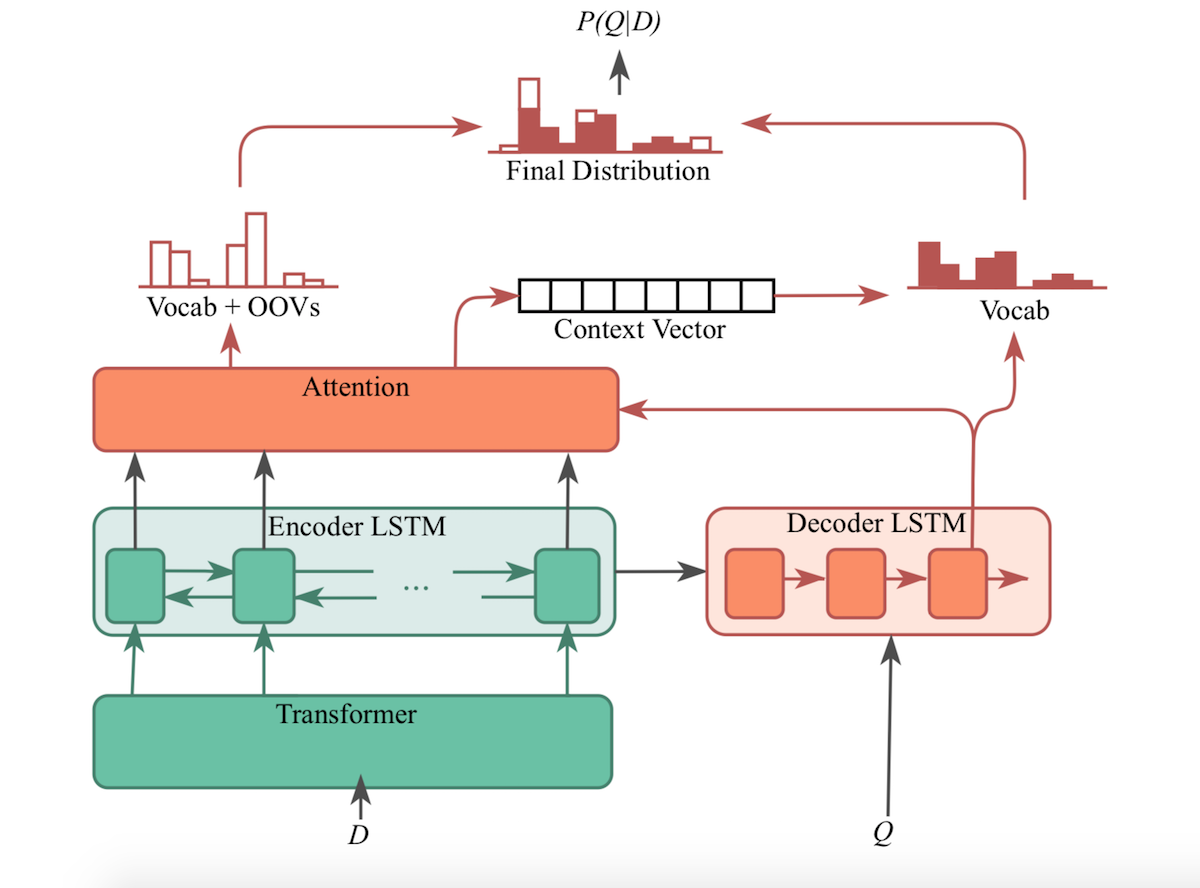
Abstract
Existing neural ranking models follow the text matching paradigm, where document-to-query relevance is estimated through predicting the matching score. Drawing from the rich literature of classical generative retrieval models, we introduce and formalize the paradigm of deep generative retrieval models defined via the cumulative probabilities of generating query terms. This paradigm offers a grounded probabilistic view on relevance estimation while still enabling the use of modern neural architectures. In contrast to the matching paradigm, the probabilistic nature of generative rankers readily offers a fine-grained measure of uncertainty. We adopt several current neural generative models in our framework and introduce a novel generative ranker T-PGN, which combines the encoding capacity of Transformers with the Pointer Generator Network model. We conduct an extensive set of evaluation experiments on passage retrieval, leveraging the MS MARCO Passage Re-ranking and TREC Deep Learning 2019 Passage Re-ranking collections. Our results show the significantly higher performance of the T-PGN model when compared with other generative models. Lastly, we demonstrate that exploiting the uncertainty information of deep generative rankers opens new perspectives to query/collection understanding, and significantly improves the cut-off prediction task.
Citation
Oleg
Lesota,
Navid
Rekab-saz,
Daniel Cohen,
Klaus Antonius Grasserbauer,
Carsten Eickhoff,
Markus
Schedl
A Modern Perspective on Query Likelihood with Deep Generative Retrieval Models
Proceedings of the 2021 ACM SIGIR International Conference on Theory of Information Retrieval,
185--195, doi:10.1145/3471158.3472229, 2021.
BibTeX
@article{Lesota2021DeepGenIR,
title = {A Modern Perspective on Query Likelihood with Deep Generative Retrieval Models},
author = {Lesota, Oleg and Rekab-saz, Navid and Cohen, Daniel and Grasserbauer, Klaus Antonius and Eickhoff, Carsten and Schedl, Markus},
journal = {Proceedings of the 2021 ACM SIGIR International Conference on Theory of Information Retrieval},
doi = {10.1145/3471158.3472229},
pages = {185--195},
month = {July},
year = {2021}
}
Acknowledgments
This research is supported in part by the NSF (IIS-1956221). The views and conclusions contained herein are those of the authors and should not be interpreted as necessarily representing the official policies, either expressed or implied, of NSF or the U.S. Government. This research is also supported by Know-Center Graz, through project “Theory-inspired Recommender Systems”.
